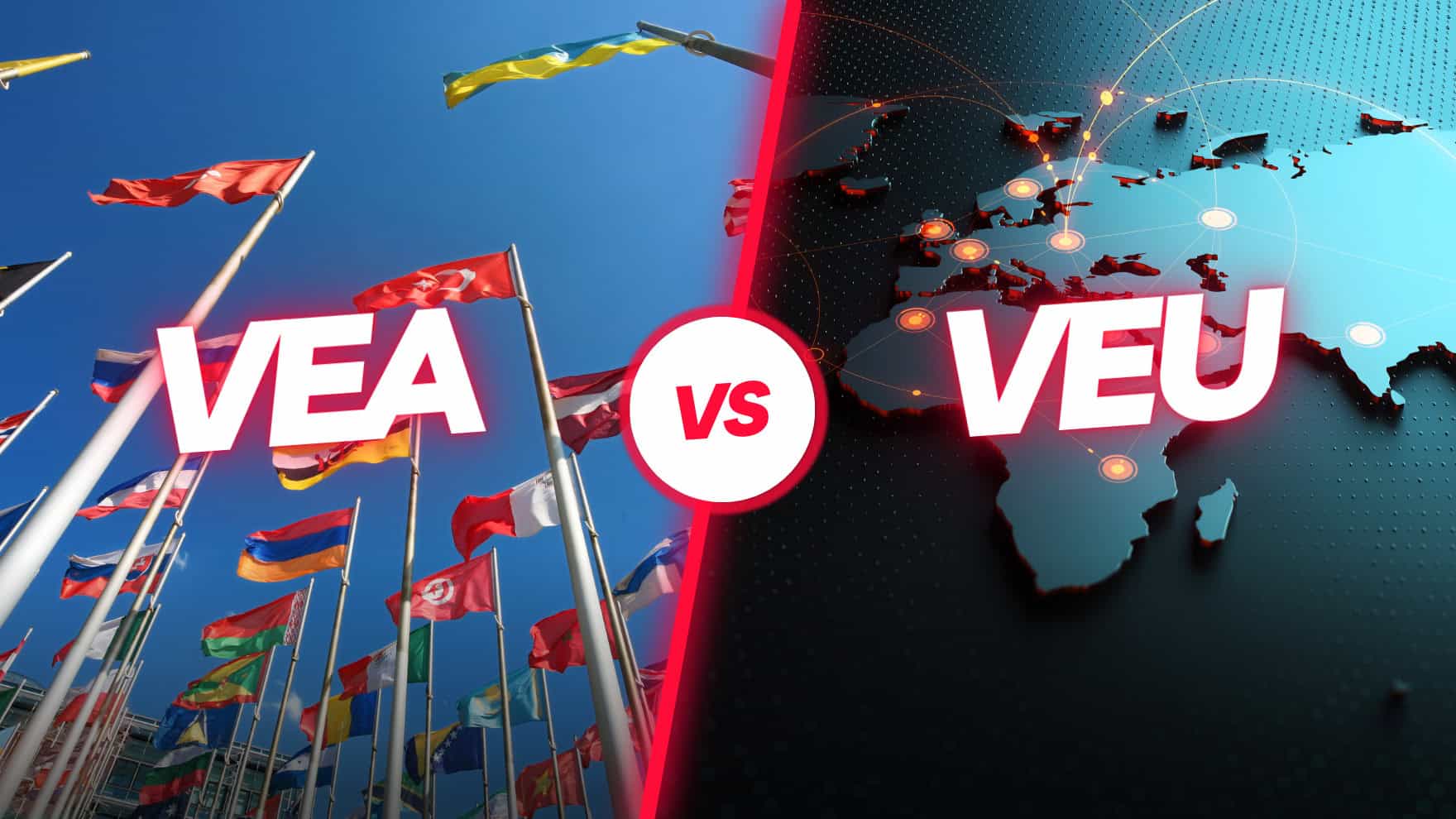Investing
VEA vs VEU: Which International Vanguard ETF Is the Better Buy Today?

Published:

If you were asked what did Samsung Electronics, Saudi Aramco and Kweichow Moutai have in common, besides being 3 of the largest companies in the world? Surprisingly, the answer is this: none of them have any public stock available on a US exchange. In order to get an equity stake in Saudi Aramco, Samsung, or Kweichow Moutai, one must put an order in on the actual international exchange (Riyadh for Saudi Aramco, Seoul for Samsung,and Shanghai for Kweichow Moutai), convert their dollars to the corresponding local currency, and then reverse the process when they decide to sell.
As multinational companies that originate outside the US proliferate, political and other factors may enter into the equation to eschew registration in the US. Perhaps finding their own regional markets a better fit, these companies have upsides and track records that rival many of those in the top S&P 500 stalwarts.
Fortunately, Exchange Traded Funds (ETFs) may offer investors exposure to these and other companies in a diversified fund format that offers the convenience of ordinary US stock trading protocols with built-in risk mitigation for liquidity and volatility.
With $10.4 trillion AUM, Vanguard is the second largest asset manager behind BlackRock. Founded by “the father of index investing”, John Bogle, Vanguard’s bread and butter business is its ETFs, which are predominantly passively managed and tracked with benchmark indexes.
Two of Vanguard’s international ETFs that may scratch an investor’s international itch are:
Vanguard FTSE Developed Markets ETF (NYSE: VEA) and
Vanguard FTSE All-World ex-US ETF (NYSE: VEU)

Launched in July, 2007, the Vanguard FTSE Developed Markets ETF (NYSE: VEA) is designed to track the MSCI Developed All Cap ex US Index. VEA includes a range of large-cap and mid-cap stocks from Canada, Europe, Middle East, and the Pacific Rim.
An overview of VEA includes the following:
|
Net Assets |
$191.39 billion |
|
Yield |
3.36% |
|
Average Daily Volume |
12.41 million shares |
|
Expense Ratio |
0.06% |
|
Beta |
1.09 |
|
1-Year Return |
7.19% |
|
5-Year Return |
5.46% |
|
10-year Return |
5.56% |
VEA holds 3.909 stocks but its top 10 holdings give a good idea of the ETF’s breadth of coverage. Europe accounts for 52.90% of issues, 35.70% for PacRim, 10.60% for North America, and the Middle East at 0.80%.
|
Name |
Country |
Pct % |
|
ASML Holding NV |
Netherlands |
1.24% |
|
SAP SE |
Germany |
1.21% |
|
Novo Nordisk A/S |
Denmark |
1.19% |
|
Toyota Motor Corp. |
Japan |
1.01% |
|
Nestlé S.A. |
Switzerland |
0.95% |
|
AstraZeneca PLC |
UK |
0.88% |
|
Novartis AG |
Switzerland |
0.87% |
|
Roche Holdings, AG |
Switzerland |
0.87% |
|
Shell plc |
UK |
0.87% |
|
HSBC Holdings plc |
UK |
0.80% |
From a sector perspective, VEA is weighted in the following sectors:

The Vanguard FTSE All-World ex-US ETF (NYSE: VEU) was launched in March 2007. It tracks the FTSE All-World ex US Index. It carries a broad range of stocks from emerging markets, in addition to Europe, PacRim, Europe, North America, and the Middle East.
An overview of VEU includes the following:
|
Net Assets |
$55.84 billion |
|
Yield |
3.24% |
|
Average Daily Volume |
2.93 million shares |
|
Expense Ratio |
0.07% |
|
Beta |
1.03% |
|
1-Year Return |
9.56% |
|
5-Year Return |
5.01% |
|
10-year Return |
5.21% |
VEU holds 3.831 stocks and its top 10 holdings reflect a stronger Emerging Markets tilt. Emerging Markets make up 27.60%. Europe accounts for 39% of issues, 26.`0% for PacRim, 6.80% for North America, and the Middle East at 0.50%.
|
Name |
Country |
Pct % |
|
Taiwan Semiconductor |
Taiwan |
2.78% |
|
Tencent Holdings |
China |
1.18% |
|
ASML Holding NV |
Netherlands |
0.98% |
|
SAP SE |
Germany |
0.96% |
|
Novo Nordisk A/S |
Denmark |
0.95% |
|
Toyota Motor Corp. |
Japan |
0.81% |
|
Nestlé S.A. |
Switzerland |
0.75% |
|
AstraZeneca PLC |
UK |
0.70% |
|
Novartis AG |
Switzerland |
0.69% |
|
Roche Holdings, AG |
Switzerland |
0.69% |
From a sector perspective, VEU is weighted in the following sectors:

As one can see, a side-by-side comparison does not show any significant differences between the Vanguard FTSE Developed Markets ETF and Vanguard FTSE All-World ex-US ETF apart from:
Other factors, such as yield, Return on Investment, expense ratio, and geographic sector, are fairly equivalent.
From a tactical growth perspective, VEU may have an advantage.
Investors looking at one or the other to add to a portfolio should obviously take all of the criteria into consideration and weigh personal preferences and objectives in making a final decision.
Retirement can be daunting, but it doesn’t need to be.
Imagine having an expert in your corner to help you with your financial goals. Someone to help you determine if you’re ahead, behind, or right on track. With SmartAsset, that’s not just a dream—it’s reality. This free tool connects you with pre-screened financial advisors who work in your best interests. It’s quick, it’s easy, so take the leap today and start planning smarter!
Don’t waste another minute; get started right here and help your retirement dreams become a retirement reality.
Thank you for reading! Have some feedback for us?
Contact the 24/7 Wall St. editorial team.